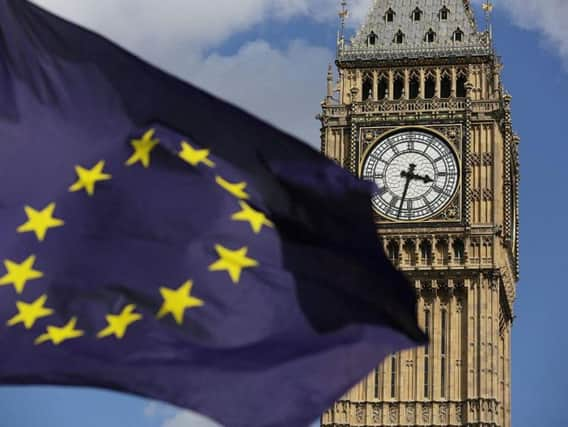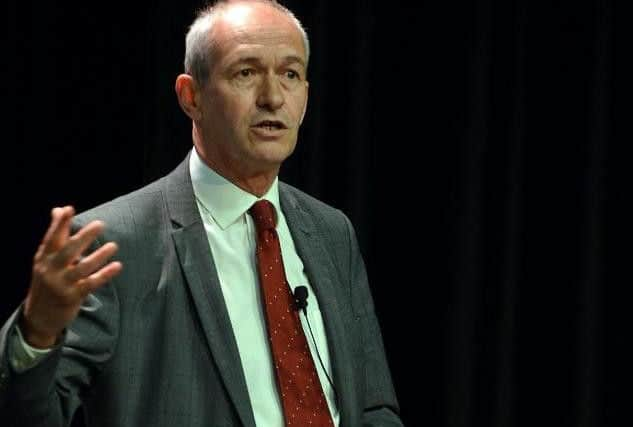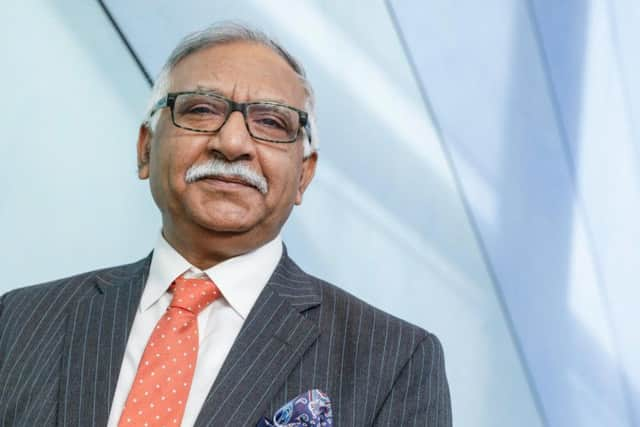Exclusive: Yorkshire's MEPs prepare for another round of European elections as speculations grows over delay to Brexit


Prime Minister Theresa May was yesterday continuing talks over a Brexit Plan B after her deal was rejected by MPs on Tuesday in the worst government defeat in Britain’s democratic history.
Now, the region’s MEPs are braced for an impromptu election campaign - with the next round set to take place in late May - should she be forced to go back to Brussels and plead with EU leaders for more time.
Advertisement
Hide AdAdvertisement
Hide AdLabour MEP for Yorkshire and the Humber, Richard Corbett, said he was increasingly convinced that the Article 50 legislation enacting Brexit would have to be extended.


Bill Carmichael: Brexit has to happen for democracy’s sakeHe told The Yorkshire Post: “I very much expect there will be an extension because even if the Prime Minister’s deal is accepted she has kicked the can so far down the road there isn’t enough time to get all the legislation through by March 29.
“The question is for how long and then the even bigger question is whether during that period Britain decides to change its mind about Brexit given what a mess the whole things has become.”
Asked if he was on an election footing, he replied: “Put it this way - I’m beginning to think about it.”
Advertisement
Hide AdAdvertisement
Hide AdUkip MEP Mike Hookem confirmed he was also expecting Brexit delays, and said: “We’ve been preparing for an election since last year and we are expecting an extension to Article 50, which I believe has always been the game plan. We have always campaigned to leave the EU. If we leave on March 29 and the country is out of the European Union - happy days, brilliant. But that is looking less and less likely.”


His fellow Ukip MEP, Jane Collins, added: “We have been looking at the possibility of fighting 2019 Euro elections for some months. The prospect does not frighten us. We’ve been preparing and as part of those preparations we’re aware that actions taken by Mrs May’s Government and supported by the Labour Party have created some problems for themselves and the UK.”
Despite the Brexit deadlock, three representatives in Brussels, who were last elected in 2014, remained unconvinced an election was on the cards.
Conservative John Procter said: “I am not preparing for it. As far as we are concerned and in terms of the operation of the European Parliament, March 29 is it and we are done.
Advertisement
Hide AdAdvertisement
Hide Ad“That said, the events in Westminster are concerning and my preference has always been to leave with a deal. That is the best approach in terms of protecting jobs and smaller businesses in Yorkshire and the Humber.”
Labour’s Linda McAvan said she was not preparing for an election, while Tory MEP Amjad Bashir added: “I would be concerned by any attempt to revoke Article 50, or even extend it for anything more than a few weeks. When I campaigned for leave I was asking for my P45 - and I expect to get it along with other UK MEPs in March 29. No other plan has been discussed.”
This week Labour leader Jeremy Corbyn, who refused an invitation from the Prime Minister to take part in Brexit talks, said: “Quite clearly, if no agreement has been reached within the time it could be implemented by the end of March, the issue of extending the exit date, extending Article 50, does come into play.”
Advertisement
Hide AdAdvertisement
Hide AdAccording to the Government’s analysis, the total cost of the 2014 European Parliamentary elections in Yorkshire was £4,673,393. Based on the number of votes cast - a total of 1,303,569, a third of the region’s electorate - the cost per vote was £3.59.
Yorkshire’s cost per vote was actually one of the lowest in the country, with each vote in the East Midlands costing £4.82 and Scotland seeing a ratio of £6.23 per vote.
The total cost for the whole United Kingdom, taking into account returning officers’ services, polling stations, postal votes, the cost of poll cards and candidate mailings, was £68,132,739.